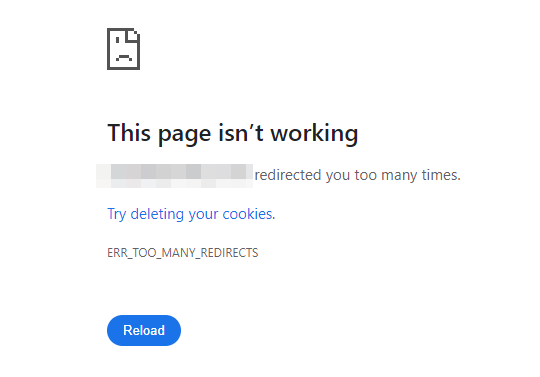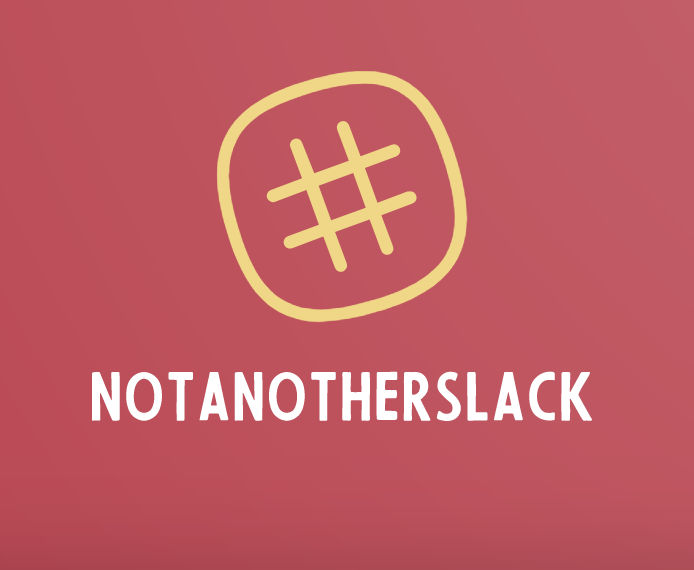I've been thinking on this one for a while - what is it that makes an SEO consultant ethical? Or what does it even mean to be an ethical SEO, if it is even possible?
I'd decided that in the end, as with many things in life, the answer is fairly complex. Nothing is as simple as it's often made out to be.
In this piece I'm going to explore what I think it means to be an ethical SEO. I by no means feel this is a shut case. I believe, as with many things, it's very open to interpretation. I look forward to hearing what other SEO's and marketers think of when they hear the phrase ethical SEO being mentioned.
My own flirtations with ethics, and SEO, in general
So what considerations are there when it comes to ethics and SEO? Whilst there may be many different ways to define it, here are a few things that come to my mind based on working in SEO for the past 10 years. By no doubt I might have missed some good topics - you're welcome to add a comment below or find me on Twitter if you wanted to add any others.
1 - Which companies and industries do you choose to work with? Do you have any boundaries?
This was a big one, and I think this is one of the biggest ways in which an SEO might consider themselves as being ethical. If you are happy to work with any business, in any industry, then it could be argued that you aren't really willing to put down a marker as to those industries that perhaps morally or ethically you don't want to be involved with.
For example, there are some very competitive, and lucrative industries where the SEO stakes are high. Some of those industries might include:
- Gambling & iGaming
- Payday loans
- Adult entertainment
- Arms (guns and weapons)
- Tabloid newspapers (eg The Sun / Daily Mail)
- Oil extraction and other natural resource exploitation

Now, I don't want to put out a blanket statement like "anyone who works in the adult entertainment industry is morally bankrupt" - it's clearly not as black and white as that - but many people might choose to opt-out of working with particular industries due to some of their own personal beliefs. I think it's important to allow people to have this option, perhaps even more so if you happen to be working within an agency. I think (good) agencies should allow their employees choice when it comes to choosing clients they would/won't work for.
For me I'm currently trying to only work with clients that do good for the planet in some shape or form - and definitely not those that do it, or the people on it, harm of some kind. Most of the time my gut feeling is enough to work from when deciding if a client is in a space that I'd be happy to represent. I've since been lucky enough to work with clients in the green technology space, as well as charities and NGO's that help animals and nature.
To put things another way - I don't think I'd sleep well at night knowing that my working day was spent helping a payday loan company get found by people on Google. Whilst they might argue that they provide a valuable service helping people who have no savings or credit history to get access to credit overnight, I personally wouldn't quite see it in that way (they often target people from low income households and encourage them into a credit account where the interest rates will be sky high, thus leaving them in an even worse financial position than when they started).
Having a very young family, it's important to me that I can get a decent night's sleep! 😴
2 - Overselling or overpromising on the results you'll deliver
This can be interpreted in a few ways, either of which are probably not that great to be doing morally. Let's say you're speaking with a potential new client and they're keen to hear how you can help. Perhaps you're tempted to exaggerate the speed of the impact of your work. Instead of explaining that good, sustainable SEO still takes time to show it's true impact, you might be a bit over eager and suggest that the impact will be visible in a few days or weeks.
You might also be a bit too ambitious with the keyword rankings the client wants to target, offering them top 3 results for super competitive queries when the company in question has a low budget, or few resources to help internally. Overpromising is always a bad idea as it'll inevitably come back to haunt you when you struggle to live up to their expectations. Trust is really important when building business relationships and someone who isn't honest is arguably not a very ethical SEO.
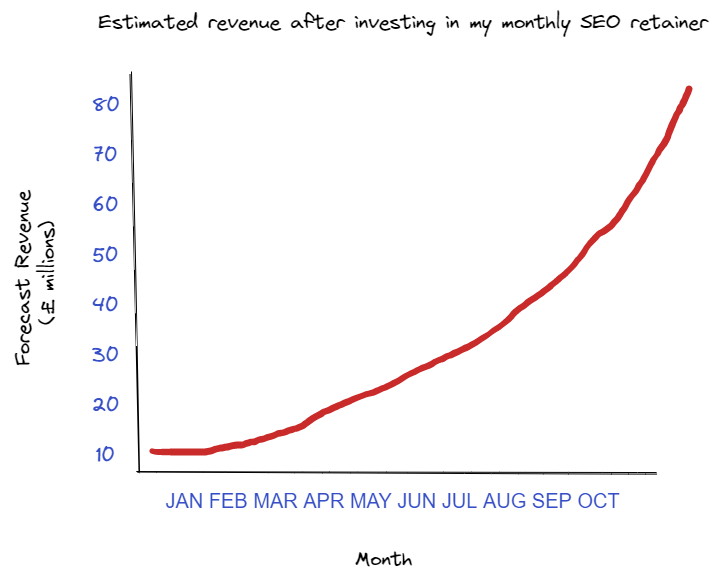
3 - Making use of a PBN or other shady tactics to build links 🔗
This one should be fairly clear cut at least compared to the rest, although the definition of a PBN might be very open to debate. PBN stands for Private Blog Network - it's a group of sites owned and operated by one person or business. It's a strategy sometimes used by blackhat SEO's to build links to a client site (or their own site) in order to improve a site's organic rankings. Links are still key to rank a site in 2022, despite what many people might say.
Google has stated on countless occasions that these PBNs are against webmaster guidelines. Some SEO's will also argue; who gives Google the right to police the internet? The clear takeaway though is that it's a dangerous game and if caught you may end up getting penalised by Google, meaning your SEO efforts will have been wasted.
It's a more sensible, and ethical approach, to build links naturally from sites that aren't under your own control. I personally think it's OK if you're careful about the way in which you do link between sites - for example on my site here I do link to a few other sites that I own, but that's solely to share them as examples of my work, and isn't done to influence or manipulate organic rankings (honest, 'gov!). Some might call that a PBN - but I’d kindly disagree 🙂
4 - Exploiting other freelancers or businesses to help your own business grow 💰
It's all too easy nowadays to go onto a freelancer platform like UpWork of Fiverr, look for a content writer, enter your budget, and hire based on price without really asking yourself whether or not that rate would be a fair, liveable wage. It's very tempting to use those sites to target freelancers based in places where the cost of living is far lower than that of the UK or elsewhere, underpaying someone to complete work for you which will later be sold on at a much higher rate.
This kind of geographic-arbitrage has been encouraged by many in the past but I think slowly people have started to realise that it isn't actually very fair. We should be paying people based on the quality and output of their work, not based on where they are located even if they may have higher or lower living costs. For many SEO's they might need to bear this in mind when looking to hire content writers in particular, as whilst there may be an influx of people to chose from all over the world thanks to the globalisation of the workforce and big pivot towards remote working, it's far too easy to underpay someone then it is to overpay.
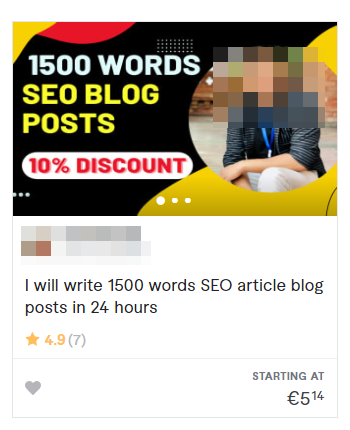
I think this shift towards a gig economy has made freelancers feel a bit dispensable, becoming a productised service that you can dip in and out of, where there's less of an emphasis on treating the other person as a fellow freelancer.
Try and ask yourself if the person on the other end of the gig is going to be able to live off the rate you're paying them. Don't just assume that they're able to work and bill for projects completed 8 hours a day, 5 days a week. Obviously freelancers spend a lot more time on other things like pitching for work, not just on completing projects. If you're a consultant yourself you'll know all too well you could never work on billable projects/client work 40 hours per week.
5 - Working with clients with competing interests
Many freelance consultants are upfront on their website and marketing material, stating that they'll only work with 1 client per industry at any one moment. That's because of the element of competition involved, whereby they don't want to be in a position where they could be accused of favouring one client over another, doing a better job for one than another, or of leaking key insider business information.
Things can get messy if you're involved with many businesses that compete directly. Whilst it's fine if you specialise in working with clients from a particular industry, you should always disclose when there might be a conflict of interest with a potential client before you get into a difficult position. This isn't one that's come up much with me, but is one you should always be aware of.
6 - Pretending to be an expert in something you don't really know anything about 🤷♂️
This can be interpreted in many different ways, and is quite hard to pin down to specifics, but ultimately if a client reaches out to you and asks if you know how to do X - where it might be something like digital PR, link building, technical SEO, or whatever else, you need to be careful not to bend the truth regarding your own capabilities.
Whilst I 100% understand that freelancers and consultants often suffer from imposter syndrome (speaking from personal experience), I do still think you need to learn when to be honest and say "sorry, that's not my area of expertise". If you've put in a bit of time and found a network of people you trust to do a good job, in skills that compliment that of your own, then it's great to be able to say "sorry I can't help with that - but I know someone who can" and then to give them a referral. The consultant you send them to will be grateful, the client will be happy as you've helped them to find someone for the job in hand, and so it's a bit of a win-win situation.

You don't really want to be in the position where you're deep into a project and the realisation hits that actually you're a little out of your depth and you may need some help. This happened to me when I took on a very big ecommerce migration project with many moving parts and a slightly dynamic stakeholder setup, the likes of which I'd never experienced before. Thankfully because I've been able to build up some kind of professional network, I was able to find someone who could step up and assist me. Having access to other marketers on tap becomes invaluable for the (hopefully) rare moments like these.
7 - Leaning on the scales - aka fudging the reporting figures 📈
Slightly related to the overselling of the SEO services as reported earlier, "leaning on the scales" is the equivalent of purposely tweaking your reporting numbers in order to make your work look far more beneficial than it actually is.
Whilst I've seen many agency analytics accounts whereby the sessions metrics were widely inflated, I do believe these were down to technical setup issues and not a result of purposely inflating the numbers to make the impact of their work look better than it was. It wouldn't surprise me though if some desperate SEO agency would happily tweak the reports to ensure the client remained happy with how the SEO investment was progressing. No-one wants to show flat growth when their backs up against the wall.
For me a successful SEO client relationship is about being honest and upfront when things aren't performing as they should be. Whilst you'd love a big drop in traffic to be a reporting issue or something that's out of your control, sometimes it can be a result of decisions made with regard to SEO strategy, or technical changes on a website. The key thing is to observe the problem, find a solution, and to communicate this to the client.
8 - Outsourcing ALL the work you do (without the client having any idea)
Whilst I don't think there's much wrong with getting help on various elements of your job to save your time - I think it's important that as an SEO consultant you're the one executing the heavy lifting. Ultimately a client came to you because they want to work with you - not whoever it is you're outsourcing the work to secretly.
Whilst some could argue that as long as you're carefully monitoring all the work done on your behalf, there's little wrong with outsourcing or entering into a white label agreement with someone. I think it's OK to a certain extent but it's important that you communicate this to the client beforehand. I think it's disingenuous of you to position yourself as an SEO consultant, completing all work on behalf of a client when you are in fact outsourcing most of it.
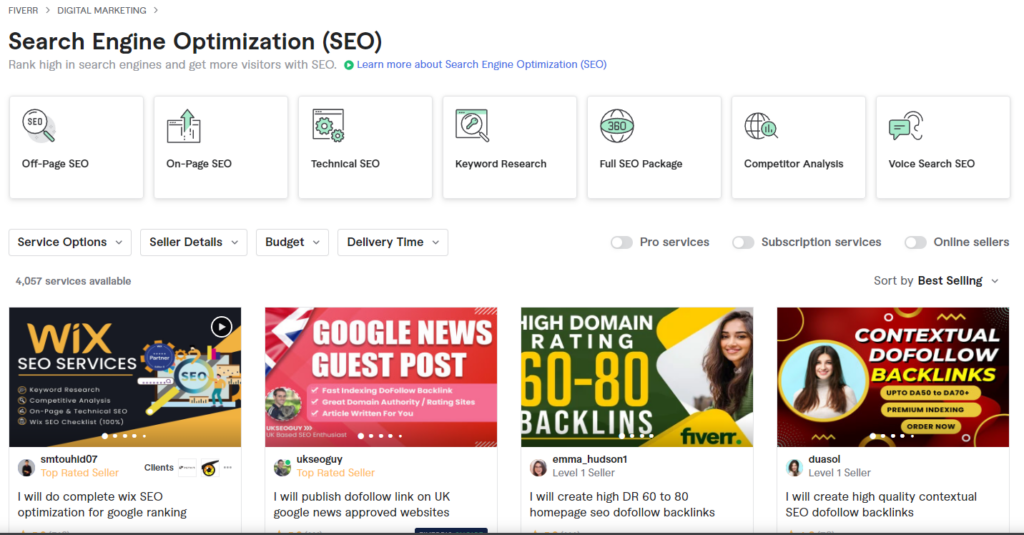
Typical outsourcing might involve getting a writer to help with copy, designers to help with imagery, researchers to help with elements of digital PR. I think that's all fine, but if you're an SEO and you're selling SEO services to someone, yet don't actually DO any of the SEO work yourself, then that's not quite right.
9 - Not knowing when to say "Actually no - you don't need to invest in SEO" 🚫
I think this is a big one. I get a strange satisfaction out of telling a potential client that I don't think they need SEO right now. Admittedly it's not very often, but sometimes it doesn't feel like the right moment for them. Maybe their website is threadbare or their products aren't quite up to scratch, or even the search demand isn't there for what they're offering. Sometimes the best thing for a small business owner is to hear the words coming from an SEO.
The absolute worst situation would be to take on a client that clearly wasn't ready for SEO, to burn their marketing budget over a period of time, and to give them this negative feeling that SEO is an industry full of snake oil salesmen. As an industry we need to move away from that, and to try and help potential clients as much as they can. Not only will you be unable to provide them with meaningful traffic that converts into sales, but they'll be disappointed in your services too.
I remember turning away a client a few years ago, advising that I couldn't see their business working as it was super competitive industry and their product really felt sub-par. A few years later they approached me again, this time with a completely different business model, which did seem a much better fit. The point is they returned to me for advice - perhaps as they trusted or appreciated my honesty before.
10 - Are we focused solely on visibility on Google - or are other search engines accounted for?
Let's face it, nowadays to do SEO means to optimise for Google - it's the most popular search engine, so there's no avoiding that we're working with Google in mind. That's not to say we're not ethical for doing so, just more an admission that sometimes I struggle with the idea that most my time is spent with the monopoly of search front-of-mind.
The fact that Google is hardly a beacon of good ethics and rightfulness should be completely evident to most people. We're talking about a business with huge profits, choosing to locate their business in countries where tax breaks are high. They're based in Ireland where many other tech firms exist. Is that good business on their part - or is it morally wrong?
There are no doubt hundreds more examples that could be shared here, but this is just a glimpse of some issues we might encounter. SEO's live by Google’s updates, bending over backwards to ensure Google is happily able to access and index the content that websites create. Whilst I personally would love to see newer search engines taking a larger market share (there are rumblings of Apple releasing their own search engine whilst Ahrefs just released an early version of theirs called Yep), we're all fully obsessed with keeping Google happy.
Outside of Google there is of course Bing (which still holds a decent US market share), followed by eco-friendly search engine Ecosia which helps to plant trees and support eco-projects around the world (but is still ultimately powered by Bing's search engine), Yahoo, Yandex and a few more privacy-focused options like DuckDuckGo.
For the most part as an SEO, it's not as if you can pick and choose which search engines to prioritise; if you're successfully able to rank a website on Google, by default you'll likely rank well on Bing and others. Most of the factors that are important to successful search engine optimisation (content, links, site speed) are valued fairly equally across each search engine.
Ultimately, in my mind, if I want to ensure the business I am working with is successful with the aim of getting found by the biggest audience online, I need to ensure they are visible where the majority of people are searching - and 9 out of 10 times this is on Google, putting my own moral conundrums aside.
Other SEO's Thoughts on Ethical SEO - from Twitter
I put the question out on Twitter and had the following insightful feedback from other fellow SEO's:
Great blog Matt. Loved point 10 about looking at other available search engines.
— Smita Poojary (@Smita_DigiMarke) July 25, 2022
Ethical SEO is a bit of combination of CSR
It is to support local/regional small businesses thrive. Help charities reach their targets, companies which invest profits into eco projects.
Don't be evil i.e. don't work for companies that will harm the planet, society, animals or climate. Don't damage the reputation of other SEOs by using black hat techniques that befoul the name of the industry. Manage client expectations with honesty and transparency.
— Tony Lopes 🇵🇹 🇿🇦 (@tonyconsults) July 25, 2022
Any other considerations on ethics and SEO? 🌍
There are probably lots more avenues that could be explored here, but I've just touched upon some of the thoughts I've had before. We might also think of targeting branded queries organically - this is common in the PPC environment, especially with B2B SaaS brands (project management tools commonly do this to try and hijack customers before they convert) - in SEO this might be as simple as creating an "my brand vs competitor" landing page, if there is any search volume. Even targeting "reviews of X product" might be questionable - whereby as the brand itself you're not exactly likely to show negative reviews on your landing page. An SEO might argue it's up to the consumer to decide which reviews or sources to trust.
What do you think, are there any other topics that might belong in this area? What does being an ethical SEO mean to you? Feel free to comment below or join in any of the debates on Twitter 🔍



